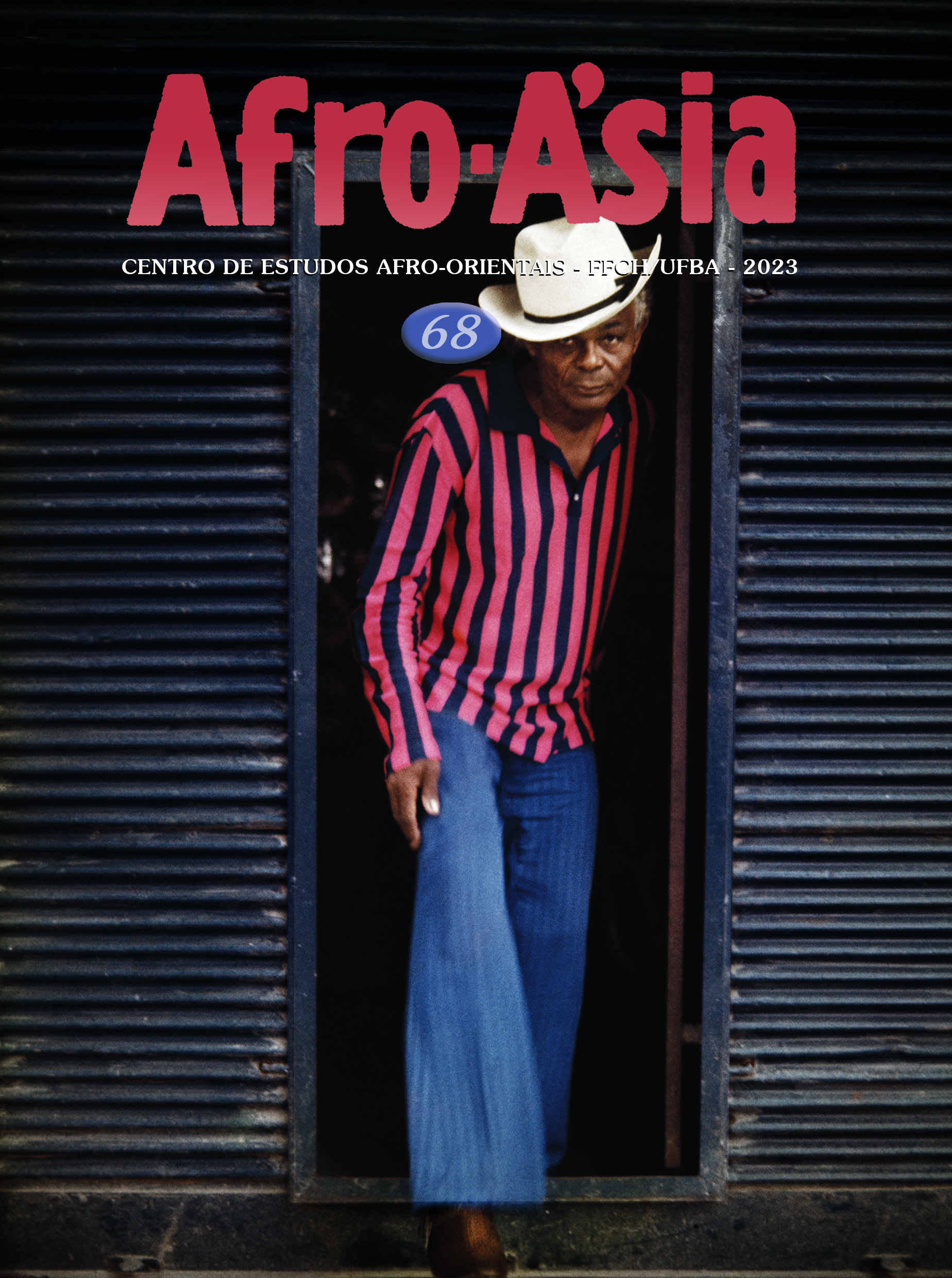The Passage from Two to Three
Dialectical Pairs in Itamar Vieira Junior's "Torto Arado"
DOI:
https://doi.org/10.9771/aa.v0i68.53041Keywords:
Space, Time, Ancestorhood, Dialectic reasoning, Torto aradoAbstract
This article analyzes 5 aspects of the novel Torto arado: the narrative space-time; the dialectical pairs involved; the strategy of establishing narrative instances; the symbolism of three objects over the course of the story; and, finally, some of the names attributed to the characters. We aim to show that land is a central category for analyzing the novel and to demonstrate how a dialectical method of interpretation is one of the most productive possibilities for deciphering it. Different social relations in a single geographical space are evidenced by memory, African ancestry and the Jarê religion, as well as by a logic of common land use in contrast to the capitalist private ownership of it. As such, the conflicts surrounding rights to housing, work and land are fundamental pillars of the narrative, from which the consciousness of the characters emerges, as well as their struggles.
Downloads
Downloads
Published
How to Cite
Issue
Section
License
Copyright (c) 2024 Ana Paula Gomes do Nascimento

This work is licensed under a Creative Commons Attribution 4.0 International License.
You are entitled to freely share, adapt and use the work herein published for any legitimate purpose as long as authorship and the original source are acknowledged.




